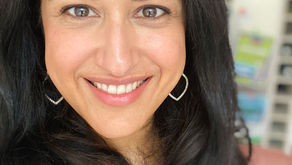On War & Innocence
- MR

- Feb 26, 2022
- 5 min read
Updated: Feb 27, 2022
Do I explain to my six year old what is happening in Ukraine today? Do I help him understand war, dictatorship, and death? How do I do that when I can't make sense of it myself?
My son knows that news is important in our house. As the child of former journalists, he is well aware of the discussions and debates his daddy and I have about events taking place around the world. And I'm glad. As much as I am protective of his innocent, idealistic, and open view of his world, I also want him to be aware that there is another world beyond the one he lives in every day, the world that consists of his mummy and daddy, his cat, his room, his house, his toys, his Nani and Papa, his uncles and aunts and cousins and friends and school and teachers. That other world will have an impact on the one he lives in, whether he feels it today or in the future.
He became aware of the news when it landed right inside his world in the form of the coronavirus. We watched the daily news briefings and listened to the radio all day. Through this global event, words that were never part of my vocabulary at his age are now part of every day conversations between him and his buddies; words like virus, vaccine, lockdown, homeschool, COVID-19, and yes, the coronavirus. But that's not all. Recycling, climate change, the environment are other words and issues on which he is being educated every day. There have been other issues such as race that are emerging too when he talks about wishing his hair was straighter like his friends and, at one point, why his skin was darker than those of the kids at school, the latter of which I quickly addressed and made sure he understood his value and worth in this world. I know there will be other difficult conversations we will be having as he grows day by day but for now the question remains--do I talk to him about a war that is happening some 1500 miles away?
The radio is back on as we scour websites reading article after article for the latest details on this act of aggression, and when we read details like families packing their belongings ready to leave their homes, we learn about children holding onto their colouring books, a simple act but one that carries such weight for those of us watching on the outside. Through social media we see images of young kids taking shelter in underground subway stations. Looking at their faces, I wonder what they're thinking. I wonder what my own son would be thinking if he was among them. One minute they're kids living their carefree, innocent lives, the next they are tossed into completely foreign emotional and mental territory. On the radio I listen to an interview with a father in Kyiv who doesn't know how to explain this war to his 15 year old daughter and what will happen tomorrow--if they will be safe when they wake up. Another person interviewed said their whole family are going to bed fully clothed ready for the event they would have to leave their home in a hurry. And those are the ones lucky enough to stay together while others have to leave their children behind to fight on the front lines.
I would hazard a guess that young Russian soldiers sent into the conflict would probably tell us, if asked, they don't want to be there, they don't even know why they're there. The last thing the younger generation of Russians want is a war with the West, let alone its own neighbours, many of whom are most likely to be friends. Polls taken in Russia (by the official Russian polling agency) shows Vladimir Putin's popularity as soaring. With state controlled media and institutions, the only narrative we will see from the Kremlin is the one Putin wants the world to see as, the New York Times reports, "opposition to this aggressive policy has been muted. The liberal-minded activists who could have been expected to lead an antiwar movement have largely been exiled or imprisoned." Yet there are some brave Russian citizens protesting against their president's actions, taking to the streets and social media to show their Ukrainian neighbours their support. The young generation don't want this war or any war. This war is about Putin's desire for an old Soviet Union, a memory of a former power. This war is about greed and nostalgia and a reluctance to accept change. All the things the young generation of Russians don't understand, accept or even care about.
The UNHCR reports that 1% of the world's population is currently displaced--that's almost 80 million people. Of that 40% are children. That number is only going to grow as close to 100,000 people living in Ukraine have left the once-safe confines of their homes for shelter in neighbouring Poland, Moldova, Slovakia, Romania, and Hungary. The Times reports numbers from UN agencies who say that number could climb to 5 million people.
Wars don't make sense. They never have. For too many families in parts of the world, war and strife and hunger and turmoil and instability are all they have ever known. For their children, that is their normality--which, even as I type those words, feels so heartbreakingly wrong. It is so heartbreakingly wrong. What makes us so special to live lives we choose, lives filled with hope and opportunity and plans for the future? How did we get so lucky to not feel unsafe?
We raise our children to solve school yard and play date squabbles with kind words. We tell them to play fair and if someone is a bully we respond with strength and confidence. As adults, aggressive behaviour never yields positive results. So how do we justify our words when leaders don't do the same? But that would be me trying to think logically and with rationale. When something happens that bears no logic or rationale, trying to make sense of it is impossible. Trying to make sense of the mind of a delusional, egotistical man with an army and a nuclear arsenal is impossible.
I decided to tell my son what was happening in Ukraine. I explained to him that Russia's leader was being a bully and had attacked another country because he wanted it for himself. I told my son that while there was nothing we as a family could physically do about it right now, it was important to know and to think of those people who are scared and hope that tomorrow will be a better day for them. And I will continue to explain to him these events around the world that are taking place not just in Ukraine but in Syria, in Yemen, and so many others that barely make the news. It's important to tell my son this because the first step to changing our world for the better is raising children who have empathy, who know the difference between right and wrong, fair and unfair. What will make his world better is emotional intelligence. And kindness.
Monita x









Comments